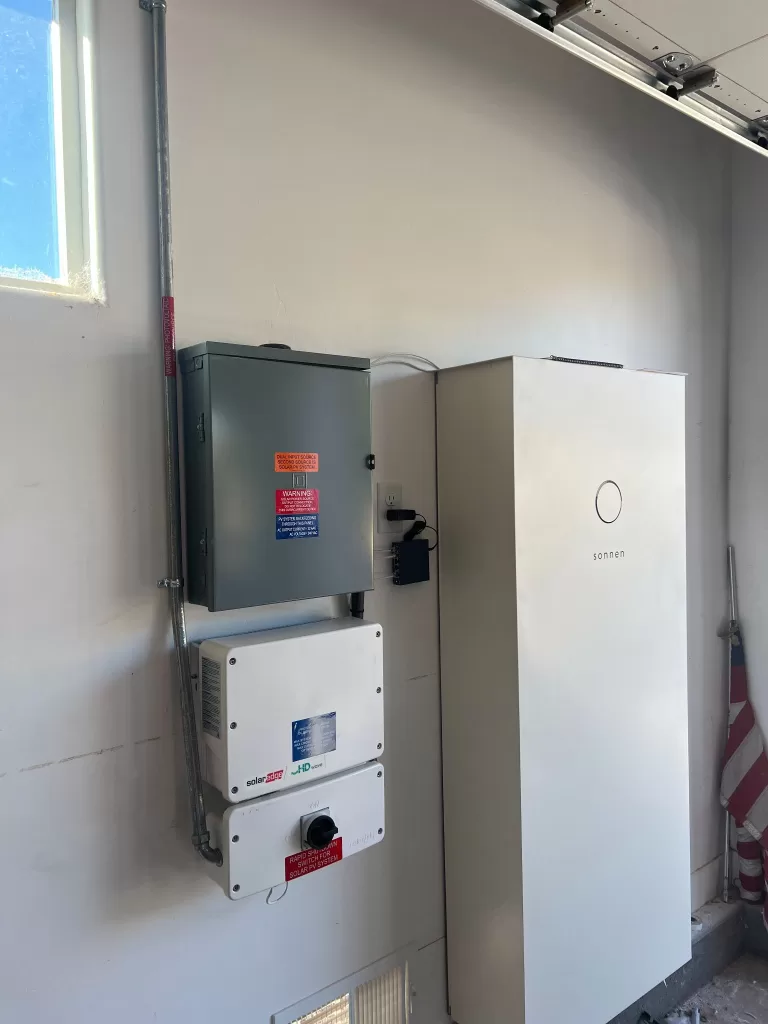Sonnen’s batteries are unique in that they are a lithium-iron-phosphate battery – meaning that they are more stable, safer and have a longer life than other solar battery systems such as the Tesla Powerwall.
Lithium-iron-phosphate (LiFePO4 or LFP) and lithium-ion cobalt (LiCoO2 or LCO) are two different types of lithium-ion battery chemistries that are commonly used in rechargeable batteries. While both types of batteries are based on lithium-ion technology, there are some important differences between them.
Safety
One of the primary differences between LFP and LCO batteries is their safety profile. LFP batteries are considered to be more stable and less prone to thermal runaway than LCO batteries, which can be more susceptible to overheating and catching fire. This is due to the fact that LFP batteries have a higher thermal runaway temperature and a more stable chemical structure.
Energy density
LCO batteries have a higher energy density than LFP batteries, which means they can store more energy per unit of weight or volume. This makes them ideal for use in applications where high energy density is important, such as in portable electronic devices or electric vehicles.

Lifespan
LFP batteries generally have a longer lifespan than LCO batteries. This is due to the fact that LFP batteries are less prone to degradation over time, which can cause a reduction in their capacity and performance.
Cost
LFP batteries are generally more expensive than LCO batteries, due to the fact that they use more expensive raw materials such as iron and phosphorus. However, their longer lifespan and higher safety profile can make them a more cost-effective option over the long term.